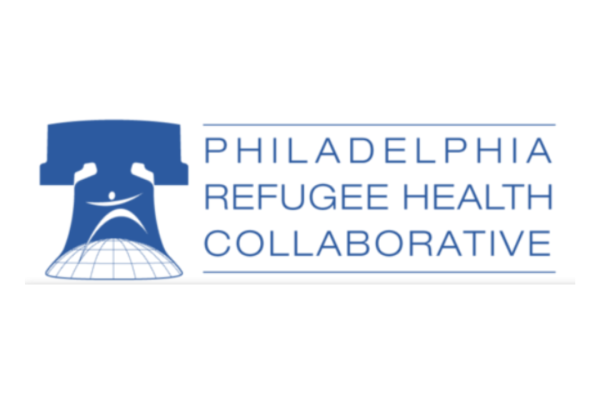Philadelphia Refugee Health Collaborative
Established in 2010, the Philadelphia Refugee Health Collaborative (PRHC) is a regional coalition consisting of Philadelphia’s refugee resettlement agencies and refugee health clinics. The Collaborative's core mission is to create an equitable system of refugee health care in the Philadelphia region that ensures a consistently high standard of care for all newly-arrived refugees. Nationalities Service Center leads this collaborative and coordinates communication and meetings within the PRHC. Until recent disruptions to refugee resettlement, local resettlement agencies HIAS Pennsylvania and Catholic Social Services were also resettlement agency partners in the Collaborative.
Current Refugee Health Clinics Include:
- Children’s Hospital of Philadelphia, Refugee Health Program
- Nemours Pediatrics
- Jefferson Center for Refugee Health, Department of Family & Community Medicine, at Hansjorg Wyss Wellness Center
- Penn Center for Primary Care
- Penn Family Care
- Wyss Wellness Center
Purpose of The Philadelphia Refugee Health Collaborative Model
In the past, local resettlement agencies struggled to find medical providers with the cultural humility and knowledge of refugee health needed to provide high quality screenings and follow-up care to refugees. In the absence of partnerships with medical providers, resettlement agencies employed an ad-hoc system of referring newly arrived refugees to private physicians accepting Medicaid and to local public health centers. However, local public health centers are so overburdened that it can take months to secure a screening appointment.
In September 2007, Nationalities Service Center and Thomas Jefferson University’s Department of Family & Community Medicine piloted a new refugee clinic model involving a close partnership between a resettlement agency and medical provider. Since then, local resettlement agencies and medical providers have replicated and adapted the Jefferson/NSC clinic model to establish additional refugee health clinics. The success of the clinic partnerships depends upon carefully coordinated systems between the resettlement agency and the healthcare provider team to remove language, cultural and other barriers to timely access to comprehensive health services.
Key Components of the Philadelphia Refugee Clinic Model
- A medical provider hosts a regular weekly/bi-monthly clinic for refugees
- The refugee clinic is a closely coordinated partnership between the resettlement agency and medical provider, including:
- Day-to-day communication and regular meetings to troubleshoot problems
- A designated staff member from the resettlement agency who functions as the “Clinic Liaison” to provide on-site assistance to help new refugee patients with registration, scheduling follow-up appointments, filling prescriptions and addressing health insurance issues
- The refugee clinic is housed in a health system providing access to a large network of specialty practices
- The refugee clinic provides opportunities for residents to train in global health and cultural humility
- The refugee clinic provides comprehensive screening, immediate attention to chronic/acute needs and a long-term medical home
Impact
Philadelphia’s collaborative model has set the city apart in its ability to support the health of refugee newcomers, including those with extensive medical needs. In Federal Fiscal Year 2024, PRHC resettlement agencies and refugee clinics coordinated to help more than 1,000 newcomers access initial screenings and establish ongoing healthcare.
Dr. Marc Altshuler, Founder and Director of Jefferson's Center for Refugee and Immigrant Health and NSC Board Member, shares, "As one of the founding members of the Philadelphia Refugee Health Collaborative, I have personally witnessed the benefits of this unique organization. In 2010, Philadelphia became the first city in the country to create a model where the overwhelming majority of newly-arrived refugees would access medical care at an academic medical institution rather than accessing our public health systems. Our proposed model incorporated the creation of a 'refugee medical home' in our individual practices as a model for providing the highest level of medical care, but also using this opportunity as a teaching opportunity for our student and resident physicians. As part of the medical home model, the clinical practices of PRHC work side-by-side with our community partners to ensure the success and improved health outcomes for the members of our immigrant community. This model has also been recognized nationally and several of the members and healthcare facilities have been identified by the CDC as Centers of Excellence in Newcomer Health, which has provided further resources to the members of the PRHC. When I reflect on the role of the PRHC, the resources have allowed our practice to work closely with our community partners to ensure that we are providing the highest quality care to our immigrant and refugee communities."
Contact
To learn more about the Philadelphia Refugee Health Collaborative or to inquire about joining the collaborative, contact Kara Friesen at kfriesen@nscphila.org
To be added to the PRHC email mailing list, contact Kara Friesen at kfriesen@nscphila.org
Resources
If you are searching for health-related resources like those that were previously available on the former PRHC website, we recommend the following sources:
CDC Refugee Domestic Medical Screening Guidance
CareRef Tool for Medical Providers
